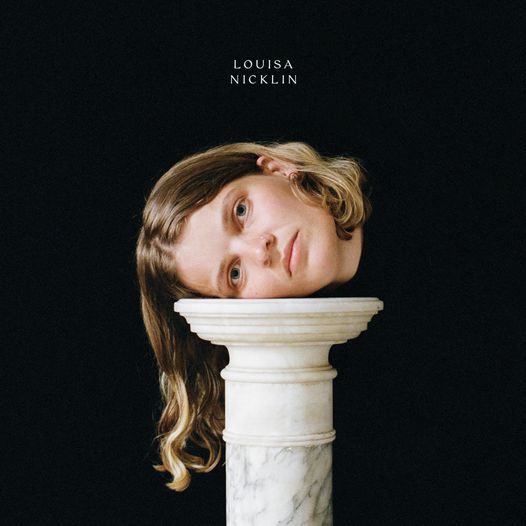|
A R T I C L E Sensing the lift: An interview with Louisa Nicklin with Barnaby Greebles The Shanghai Conservatory of Music, founded in 1927 and nicknamed the "cradle of musicians", takes pride in its increasing international reach. As the oldest music school in China, it has expanded to encompass contemporary, technological, traditional Chinese, and Western Classical music. Being invited to debut an orchestral piece at its "Hearing China" concert series (one of eight chosen from around the globe), was an opportunity not to be scoffed at. After becoming a two-time finalist in the Todd Corporation's Young-Composer's Award, and a composer for NZSO's Composer Sessions, Louisa Nicklin's expanding ouvre hit the point of a full-body writhe. Amid this success, perhaps while taking questions at the Conservatory of Music's press release, or while listening to the Shanghai Philharmonic's rendition of her psych-inspired contemporary-classical work, rumblings of a less technical nature festered. Making the switch from classical to pop was a bold move, which at this early stage appears a fortuitous one. Nicklin's new Roundhead-recorded, eponymous full-length - her second release in this format - bristles with an introspective intensity belying her genuine, easy-going nature. Echoes of classic trip-hop chanteuses percolate via her vocal tones, backed by a delightfully raw guitar-bass-drums setup (with the occasional Lesley-driven organ or sax run), redolent more of the C86/Flying Nun back-catalogue in ballad mode. Moments of harmonic and instrumental experimentation keep the listener engaged, the result being an enchanting and emotive journey. HUP: I've been really enjoying your quirky videos. I'm detecting some serious themes in your new stuff (she slipped down to her end, he found her...). I'm wondering how those pesky quotidian moments in the videos, like sticky wet hair in your eyes or a cat's tail swiping the mouth, tally with some of the darker themes? Nicklin: I think those moments fit with the darker themes as the things I write about are all real life experiences and the videos reflect that. The videos are light hearted but I also see them as touching on everyday annoyances or feelings. [continued below] HUP: I see you went to Shanghai in 2016 for the Conservatory of Music and had a piece premiered there. I listened to a couple of your compositions on Youtube too, which were very impressive. I’m hearing an expressionist postmodern style? Do you consider this avenue more successful than your pop offerings? You must be busy fitting both into your schedule. Do you find yourself spending more time on one than the other? Nicklin: I'm actually not writing much classical music at the moment. Once I started getting into song-writing my compositions sort of fell to the side. I do some every now and then but it is easy enough to balance the two as I am not usually working on both at the same time. I use one as a break from the other when I lose interest or motivation. HUP: In the writeup for your Auckland Writers Festival gig, referring to your composition work, they reference psychological phenomena as an influence. This possibly still seems to fit with some of your lyrical content. Do these ideas spill into the new album in any way? Nicklin: When I was studying music composition I was studying psychology at the same time, so the concepts I was learning in psychology I often used as the concepts for my music. This was in quite a different way than song-writing. For example, a psychological phenomena would be the inspiration for the way I structured the harmony and harmonic development in a piece. Psychological concepts don't influence my song-writing in the same way, but I guess it is true that the themes of my music sometimes touch on things like mental illness so have a link to psychology in that sense. HUP: Was I off mark? Are you saying the lyrics are more about personal experiences rather than dark psych-related tropes? Nicklin: Yeah, more like that! Almost all the songs are focused around personal experiences. HUP: Was it much of an adjustment transitioning from classical to pop? What was behind the switch? Were you always a connoisseur of brooding indie pop creeners, or did you meet others who inspired you? Nicklin: The transition came kind of naturally. I was playing in a band while I was studying composition and got drawn into the local music scene in Wellington while I was also learning a lot about writing contemporary classical music. I started playing around with song-writing; it felt pretty separate from the classical thing, but also I was pretty absorbed in music so [it] was still related. I didn't start performing songs I had written until I moved back to Auckland. I was pretty nervous about singing in public, so that was my main barrier. It's hard to say who has inspired me or my music as I have loved so many different types of music at different times, so I think they have all had influences on what I do in different ways. HUP: Are you thinking of the harmonic relationships in the same way you would with a classical piece or more sensing out the vibe while strumming a guitar? Nicklin: Definitely a lot more 'sensing it out'. When I was writing classical music the harmonic relationships were a huge part of my writing process. Now, with songwriting, it is a lot more about improvising and seeing what sounds good and not forcing melodies or harmonic ideas too much. [continued below] HUP: Do your band mates play much of a role in arranging the songs or contributing parts?
Nicklin: The way it usually goes is I will turn up to practice with the song structure, lyrics and melody and guitar part pretty much finished (but open to change), and then we will just jam it and Eamon (bass) and Mason (drums) will come up with their parts. I like to write songs that can exist solo and be enhanced by a band rather than a song that only really works as a band. HUP: I'm envious you got to spend time at Roundhead. Was it your first time in a big studio? Did Steven Marr extract your best performing self? Nicklin: Yeah this was my first time in a studio. Roundhead was pretty amazing. Steven is a great engineer and producer. He definitely tried to get us sounding our best. It was an awesome few days - a lot of fun, but also a lot of work. I'm really happy with the result and I would love to work with Steven Marr again in the future. HUP: Cool that you’ve been involved with Girl’s Rock as a mentor and instrument teacher. I’ve heard that the environment there is super encouraging. Do you have any suggestions or advice to help women musicians create this kind of support outside camp in an often male-dominated industry? Nicklin: Yeah, Girl's Rock (now 'To the Front') is an amazing environment and it would be pretty awesome if the music industry was like this all the time! I think the main ways to create this kind of support outside of the camp is to make an effort to choose different groups and artists to play at gigs. Another way is to be encouraging of each other. Playing music isn't a competition about who is best. We are all on the same team. We should be lifting each other up and I think in general the local scene in Auckland is pretty good at that.
0 Comments
Leave a Reply. |
Archives
July 2022
Categories |


 RSS Feed
RSS Feed
